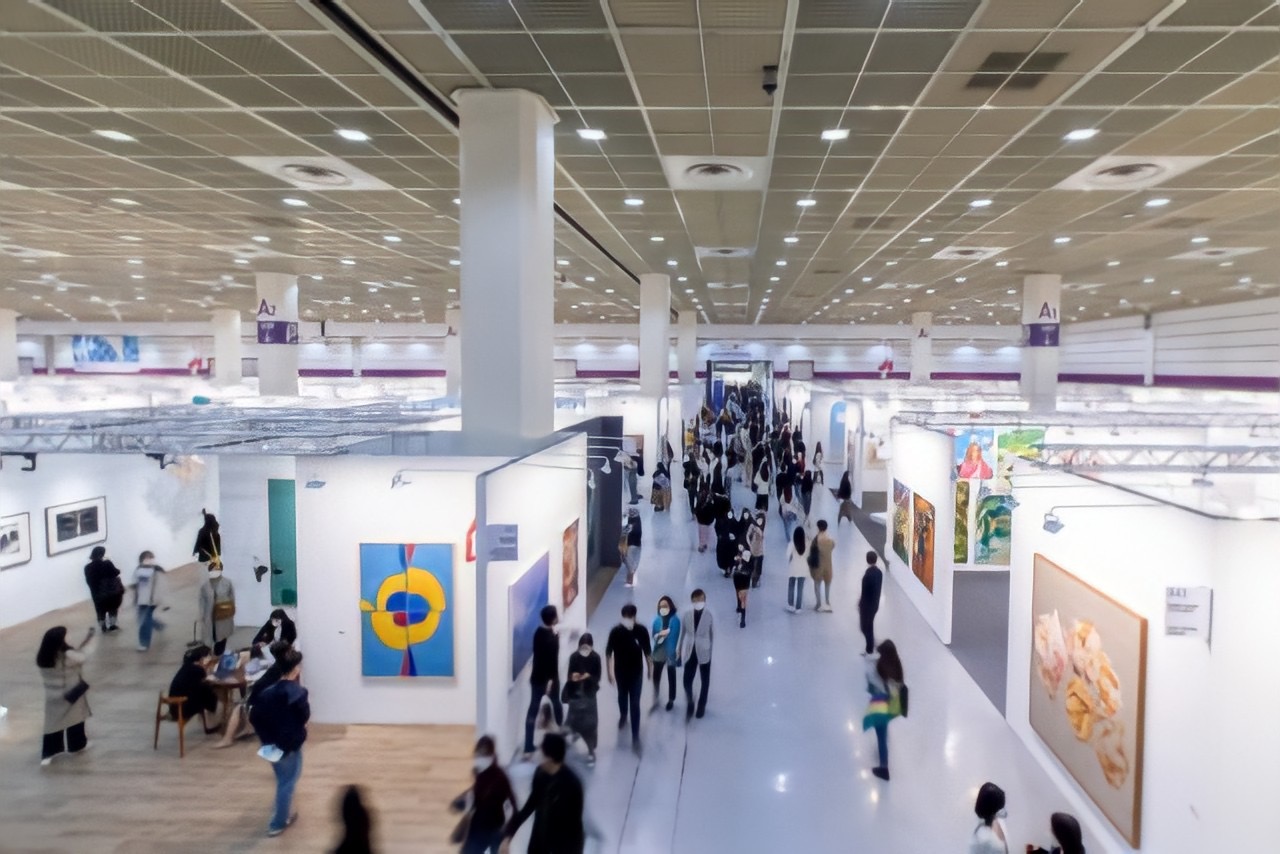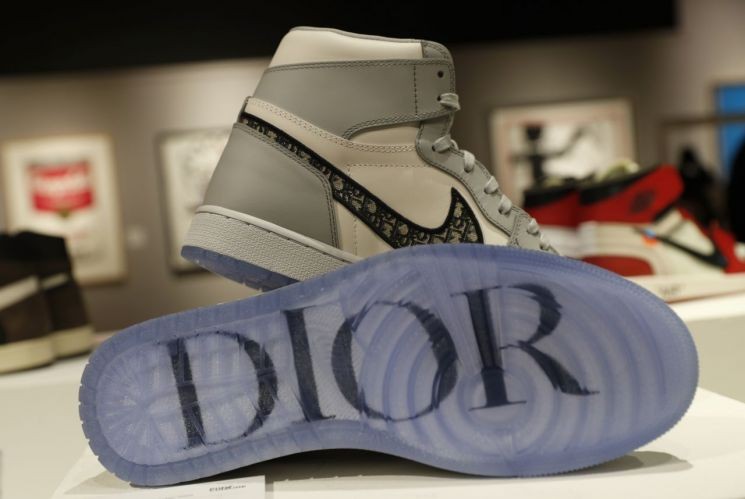New and creative financial investments are emerging these days, led by a rapidly increasing group of 'Generation MZ (Gen MZ)' collectors. Gen MZ is a Korean term that refers to both the Millennial generation that was born from 1981 to 1996 and Generation Z that was born from 1997 to 2012. Investment companies explain Gen MZ as 'having a strong tendency towards obsessing over hobbies and boldly investing in things they like.' Combine this trait with a desire to make financial investments and the features of social media, where it is easy to show off one’s distinctiveness, the demand for unique items and artwork is increasing.
 |
| ▲ The 2021 Kiaf Seoul that held in October. (Photo from Galleries Association of Korea) |
Investing in artwork was once thought to be a pastime for wealthy people. However, developments in digital technology made it accessible for anyone. People can easily learn about investing in art and as a result, it is becoming popular among younger generations. According to ‘The Art Basel and UBS Global Art Market Report 2021’, collectors from the millennial generation were the highest spenders in 2020, with 30 percent having spent over 1 million dollars (roughly 1 billion won) versus 17 percent of Baby Boomers spending the same amount over the same period. Korea’s biggest art fair, Kiaf Seoul released a report in 2021 that also shows the interest of younger generations in the art market. 60.4 percent of first-time visitors were from Gen MZ and accounted for 52.87 percent of the total purchases that year.
Younger generations are also leaders in investments in rare sneakers. This new kind of investment was, in the past, only enjoyed by sneaker collectors, also known as a ‘sneakerheads.’ However, the pastime gained interest with the rise in limited edition prices and a growth in resell markets. Instead of buying shoes to wear, investors are buying them to make a profit. Reselling is usually possible with popular products that have a limited-edition release. For example, Nike collaborated with fashion brand Dior and released ‘Air Jordan 1 High OG Dior’ in 2020 for 2,200 dollars (2.6 million won). Producing only 8500 pairs, the retail price soared to 30,000 dollars (35 million won). Big companies are also noticing the potential of sneaker resell markets. Many are launching online platforms where users can purchase and sell authentic limited-edition sneakers. For instance, the South Korean internet conglomerate Naver Corporation launched its platform KREAM. With more than 1.6 million users, about half are estimated to be in their 20s.
 |
| ▲ Nike's Collaboration With Dior (Photo from Yonhap News) |
There are three reasons why younger generations are enthusiastic about art and sneaker investments. First, the products are one of a kind. As readers may have seen, there are many advertisements where celebrities draw or paint on sneakers. This practice maximizes the shoe's uniqueness. It attracts buyers because it is a single and unique item. Second, the development of online communities has led to ease of marketing for unique items. In online fashion communities, people often imitate others when seeing information about goods they want or items that have already been purchased by others. This leads to increased product purchases and ultimately greater demand. Online artwork communities work similarly as new art collectors gain information from online communities and social media about trends in the art world. Collectors are also influenced by pieces that go ‘viral’ in these communities. Third, small amounts of investment are possible. Sneaker investments target Gen MZ due to their high utilization at a relatively low price as compared to luxury bags or watches. For art investments, there was always a stereotype that works are expensive. However, in recent years, platforms have emerged where users can invest in fractions of artwork, joint purchasing ownership. Collective art purchases are different from traditional art sales, as one cannot hang the piece in their own space, but they can still make a profit by selling it after the value increases.
Popular investment trends usually reflect the current generation. With environmental problems getting more attention nowadays, Gen MZ also focuses on eco-friendly campaigns, resource circulation, upcycling, and recycling. Following this megatrend, people tend to pay more interest in eco-friendly artwork and are likely to prioritize investing in these kinds of pieces. For example, Eric Song, a metal artist who makes giant metal art out of junk, became popular because of his upcycling practices, turning waste into art. He sells his pieces on ‘OUTOFSTOCK’, a platform that resells limited edition products. He is active with the Global Youth Environment Association’s ‘Upcycling Junk Art Project’ where he raises funds for ecology campaigns and gives the joy of owning works of art to consumers.
Some have critical views about investing in art or even sneakers, saying that buying only for profit pushes up market prices harming regular consumers. However, some investments can be an effective way not only to earn money but provide a sustainable future. Experts predict that the more Gen MZ participates in these kinds of investments, the harder it will be to stop the trend from exploding. If you want to invest and buck the trend, search for safe investment plans and make wise purchases. Your wallet will thank you.
김혜선, 구시현, 김주예 dankookherald@gmail.com

![[Campus Magnifier] Let's Surf the Library!](/news/photo/202404/12496_1765_4143.jpg) [Campus Magnifier] Let's Surf the Library!
[Campus Magnifier] Let's Surf the Library!
![[Campus Magnifier] Let's Surf the Library!](/news/thumbnail/202404/12496_1765_4143_v150.jpg)





